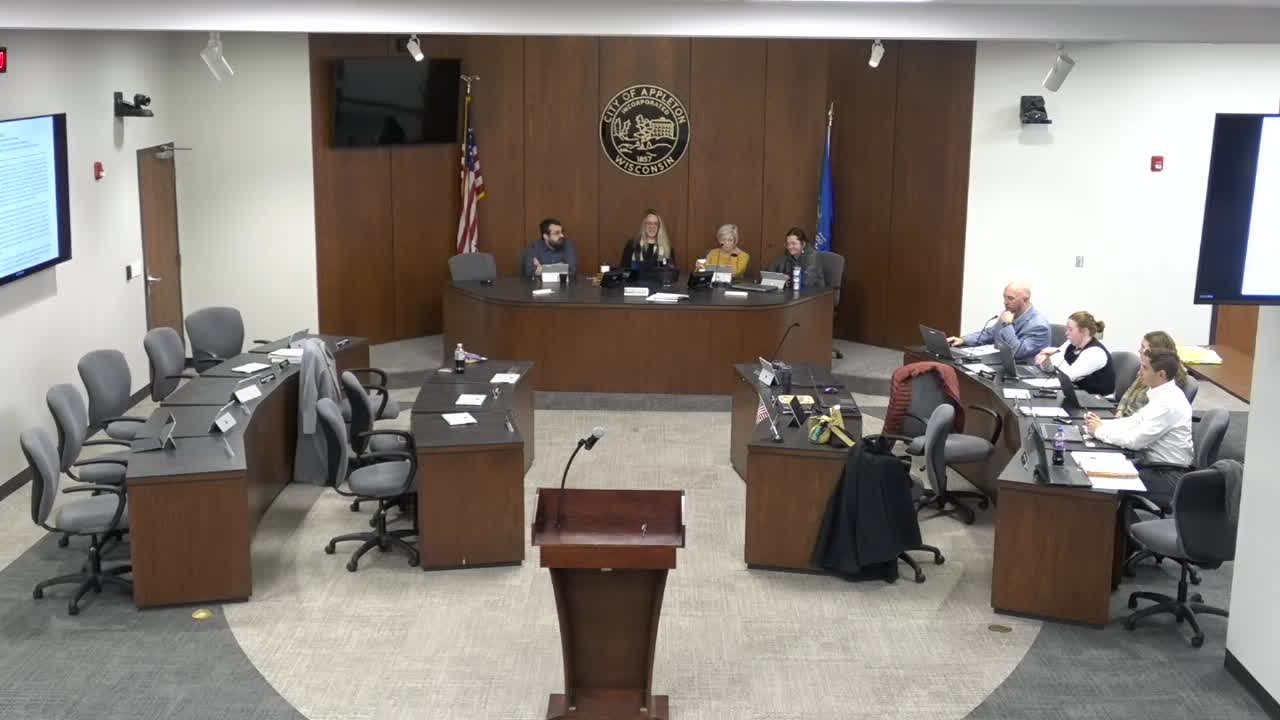Appleton committee approves preliminary 2026 CDBG allocations; $95,379 left for nonprofits
Get AI-powered insights, summaries, and transcripts
Subscribe
Summary
The City of Appleton Community Development Committee approved preliminary allocations for the 2026 Community Development Block Grant program, setting core and city department funding while reserving about $95,379 for external nonprofit applicants pending the final HUD award.
The City of Appleton Community Development Committee voted 4-0 on Oct. 22 to approve preliminary allocations for the city’s 2026 Community Development Block Grant (CDBG) program, reserving about $95,379 for competitive external nonprofit applications once the U.S. Department of Housing and Urban Development (HUD) issues the final award.
Specialist Olivia Galleon of the Community Development Department said the city estimated the 2026 CDBG award at $576,096 based on prior years and opened internal applications to city departments from Sept. 18 to Oct. 17 as part of an allocation process that first funds ongoing core projects.
The preliminary allocations earmark $303,717 for core projects (including the Housing Rehabilitation Loan program, CDBG administration and Fair Housing services) and $177,000 for two city department proposals, leaving approximately $95,379 for external nonprofit applicants through a later competitive round. "So every year as an entitlement community, the city of Appleton expects to receive community development block grant funds from the Department of Housing and Urban Development," Galleon said.
Galleon noted the estimate is preliminary and depends on the federal budget and HUD’s final award. She said adjustments typically affect the amount left for external applicants first and that the city monitors caps that limit public services funding to 15 percent and administrative/fair housing spending to 20 percent of the total award. With the current recommendations, administrative and fair housing line items total $112,467, or about 19.52 percent.
Alder Denise Fenton asked whether timing or uncertainty in the federal budget could risk city projects. Galleon replied the committee’s action is preliminary and that any entity engaged in the early-stage process should understand numbers may be modified; staff aim to be realistic and conservative so the city can begin work quickly when HUD issues the official allocation.
Committee members asked about specific projects: the Housing Rehabilitation Loan program operates as a revolving loan fund that is replenished when homeowners repay loans, while the Appleton Housing Authority has recently spent down its allocations quickly and has both down-payment assistance and rehabilitation components. Committee members also discussed an internal parks proposal for Colony Oaks Park, noting staff believe the park project qualifies because it lies in a low- to moderate-income area and would improve ADA accessibility.
The committee approved the preliminary allocations by voice vote, recorded as a 4-0 tally. Staff will open the external nonprofit application round for the remaining funds and bring advisory-board recommendations and any adjustments back to the Community Development Committee and Common Council after HUD’s award is finalized.
The vote was procedural and preliminary: the final dollar amounts and any necessary rebalancing will depend on HUD’s official allocation for 2026.
